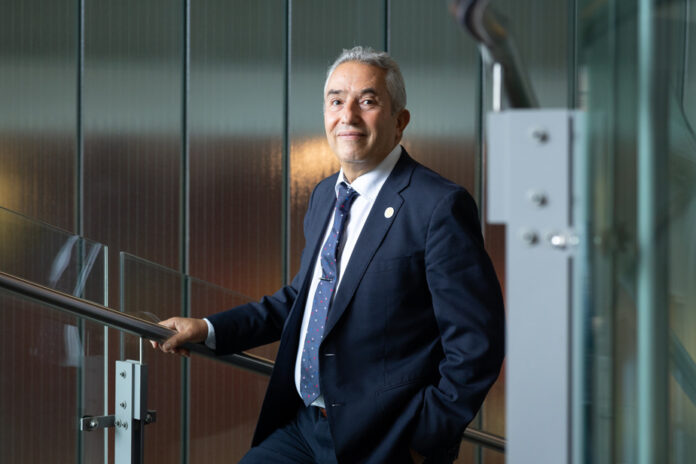Karim Zaghib has worked as a microchemist and physicist in the field of batteries for 38 years. Born in Algeria, he chose to settle in Quebec.
“We have to link everything with the energy transition,” he says in an interview with La Presse. It’s everyone’s business, that’s what I always explain to my children. »
The electrification of transport, for Karim Zaghib, is a life mission. He’s known it since he was a teenager. “I was 15 and I have asthma. I was in the south of France on vacation with my parents. There was a big traffic jam, I was very ill and even hospitalized,” he says.
“Sometimes we forget that. Figures from Harvard say 2 million people die each year in traffic accidents, but 8 million people die from fossil fuel-related transportation. Since that day, it has been my passion. »
After having been a research director at Hydro-Québec for a long time, he is now president of the company’s Electrification, a Concordia University research project that received federal funding of $123 million last April.
This project covers three main areas: technological development, net zero buildings (which can produce as much energy as they consume) as well as living laboratories, and social impact. It fits into an even bigger picture, as a total of 11 similar Canadian university initiatives have been supported to the tune of $1.4 billion.
Since 2022, Mr. Zaghib has been a full professor of chemical and materials engineering at Concordia University. “The young people, they are enthusiastic. They know what’s going on. They know there are problems, my role is to pass the torch. Every time I give a class, I am enthusiastic,” he smiles.
Although he may pass on his knowledge to students, the professor fundamentally believes that it goes further. The car still represents in our minds a synonym for freedom, which harms the development of other forms of transport. Especially since the electric car is not at all the “only solution”, in his opinion.
“It’s not normal that between Montreal and Quebec, then Montreal and Toronto, there is no TGV. […] The crux of the matter is money. The tramway in Quebec is a good example, but awareness needs to really reach everyone. »
The main interested party also says he is happy with the progress made in the last four or five years, saying he sees “courageous people” investing in projects like that of Volta Canada Energy Solutions in Granby, which we will still be talking about “in 10 or 15 years “.
And that’s without forgetting that we find all the natural resources essential to the field – with the exception of manganese – on the territory of Quebec: aluminum, graphite, copper, iron, cobalt, nickel, phosphate and lithium.
In 2026, the International Meeting on Lithium Batteries conference will also be held at the Palais des congrès de Montréal, which would not have been possible without the sustained efforts of Karim Zaghib for globally recognized Quebec representation.















